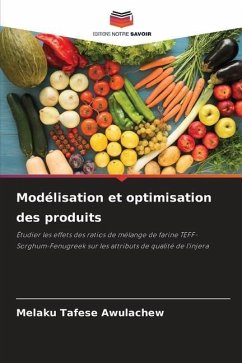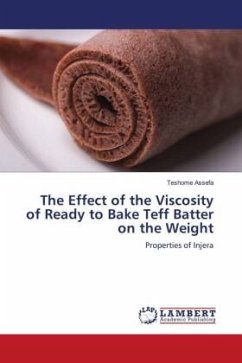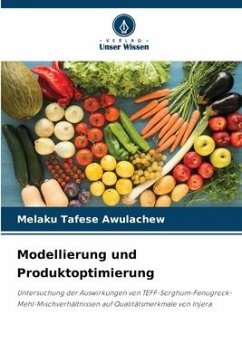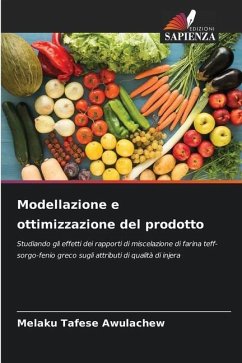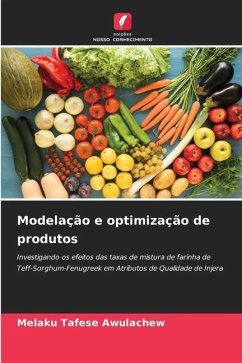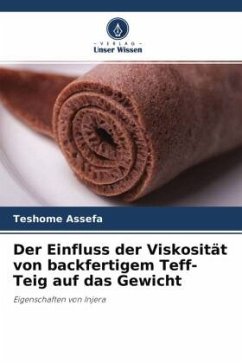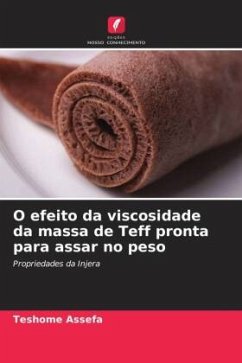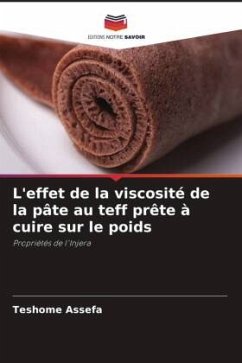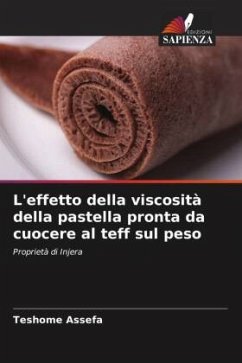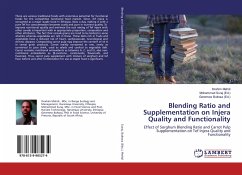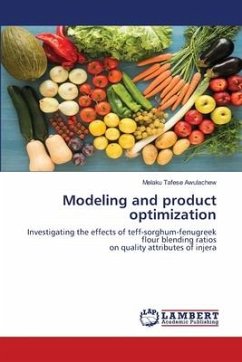
Modeling and product optimization
Investigating the effects of teff-sorghum-fenugreek flour blending ratios on quality attributes of injera
Versandkostenfrei!
Versandfertig in 6-10 Tagen
53,99 €
inkl. MwSt.

PAYBACK Punkte
27 °P sammeln!
Injera is Ethiopian fermented and leavened flat bread mainly made from teff flour. For improving the protein content and sensory quality of injera, the flours are enriched with fenugreek. Injera made from sorghum flour alone or its blend, however, has noted shortcomings in qualities when compared to teff injera qualities. Therefore this study was carried out to investigate the effects of teff-sorghum - fenugreek flour blending ratios on quality attributes of injera and to optimize the blending ratios of teff, sorghum, and fenugreek flours that give better quality attributes of injera made from...
Injera is Ethiopian fermented and leavened flat bread mainly made from teff flour. For improving the protein content and sensory quality of injera, the flours are enriched with fenugreek. Injera made from sorghum flour alone or its blend, however, has noted shortcomings in qualities when compared to teff injera qualities. Therefore this study was carried out to investigate the effects of teff-sorghum - fenugreek flour blending ratios on quality attributes of injera and to optimize the blending ratios of teff, sorghum, and fenugreek flours that give better quality attributes of injera made from these flour formulations. The effects of blending flour ratios on injera quality were investigated using mixture design methodology with a D-optimal design. Fourteen formulations of injera were produced from constrained blends of sorghum (0-50%), teff (50-100%), and fenugreek (0-5%), while a teff flour alone (100% teff flour) injera was served as control. Analyses of response parameters were made using the AACC and AOAC standard methods. Response variables considered in this study were staling rate, proximate, mineral, antinutritional factors and sensory attributes.



